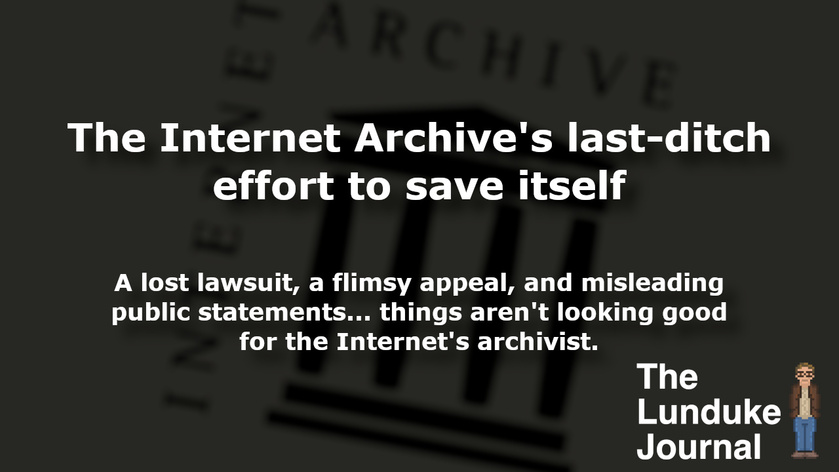- cross-posted to:
- technology@lemmy.ml
- cross-posted to:
- technology@lemmy.ml
So they did library stuff?
Libraries buy either physical books, or licenses to ebooks, and can only lend out as many of them as they own at a time. IA skirted the line by lending out self-digitized versions based on how many physical books they had, which was a grey area, but technically maybe not illegal.
They then disabled that lending limitation.There’s really nobody who would argue that taking a CD, ripping it to MP3s, and providing those for unlimited download is anything except piracy, and the people suing IA are claiming same goes for books. And it is rather hard to find a compelling legal reason why it isn’t.
If buying isn’t owning, pirating isn’t stealing. Just another branch of the habitually pocket-ran and stolen-from finally adopting that stance, from where I sit.
IA skirted the line by lending out self-digitized versions based on how many physical books they had, which was a grey area, but technically maybe not illegal.
They did that for years, and while likely technically a violation copyright the copyright holders never came after them. Then during the pandemic they stopped the artificial limit and just gave unlimited free copies of scanned books to anybody. Publishers, expectedly, had a meltdown and are now out for blood.
Loads of people don’t consider copying something and giving it to someone else as piracy. Only I’m very recent time has this been met with violence from well funded organizations.
Because the internet has made it both easier to do, and to enforce.
But it’s not a new thing at all, patents and copyrights have been enforced from pirates for well over a hundred years. This is from 1906
As others have said, making digital copies and distributing is literally piracy and not library stuff.
Expanding piracy, a pretty brutal form of robbery, to include ignoring digital media copyrights only really makes sense if you’re trying to vilify nonviolent criminals. I haven’t heard good arguments for more than 5-10 year copyrights.







